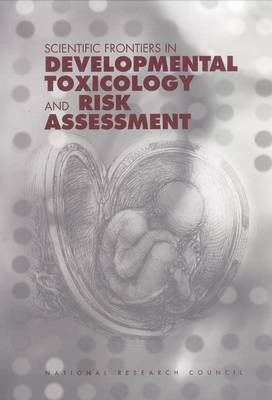Scientific Frontiers in Developmental Toxicology and Risk Assessment(English, Hardcover, National Research Council)
Quick Overview
Product Price Comparison
Scientific Frontiers in Developmental Toxicology and Risk Assessment reviews advances made during the last 10-15 years in fields such as developmental biology, molecular biology, and genetics. It describes a novel approach for how these advances might be used in combination with existing methodologies to further the understanding of mechanisms of developmental toxicity, to improve the assessment of chemicals for their ability to cause developmental toxicity, and to improve risk assessment for developmental defects. For example, based on the recent advances, even the smallest, simplest laboratory animals such as the fruit fly, roundworm, and zebrafish might be able to serve as developmental toxicological models for human biological systems. Use of such organisms might allow for rapid and inexpensive testing of large numbers of chemicals for their potential to cause developmental toxicity; presently, there are little or no developmental toxicity data available for the majority of natural and manufactured chemicals in use. This new approach to developmental toxicology and risk assessment will require simultaneous research on several fronts by experts from multiple scientific disciplines, including developmental toxicologists, developmental biologists, geneticists, epidemiologists, and biostatisticians.Table of Contents Front Matter Executive Summary 1 Introduction 2 Developmental Defects and Their Causes 3 Current Practices for Assessing Risk for Developmental Defectsand Their Limitations 4 Mechanisms of Developmental Toxicity 5 Human Genetics and the Human Genome Project 6 Recent Advances in Developmental Biology 7 Using Model Animals to Assess and Understand DevelopmentalToxicity 8 A Multilevel Approach to Improving Risk Assessment forDevelopmental Toxicity 9 Conclusions and Recommendations References Appendix A Glossary Appendix B Database Descriptions Appendix C Signaling Pathways Appendix D Biographical Information on the Committee onDevelopmental Toxicology Index


